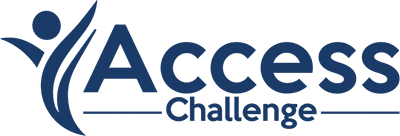Newsroom
newsroom
Partner Spotlight: Kigali Hope Organization
Partner Spotlight: Change4Us Malawi
International Youth Day Dialogue in Lilongwe, Malawi
New Directions for The Access Challenge
The Access Challenge Announces New Chief Executive Officer And Board Chairs Following Its Renewed Commitment To Empowering African And Youth Leadership
How Digital Communication Can Help Drive Vaccine Demand and Healthcare Access
Launch of the One by One: Target COVID-19 Campaign to support Africa
UHC Conference Report Launch
The Keys to Universal Health Coverage
Africa: The Elimination of Neglected Tropical Diseases Is Finally Within Reach
The Access Challenge – Universal Health Coverage (UHC) Conference
The Access Challenge Convenes UHC High Level Conference 2018,
Speak Up Africa New York Announces New Name: The Access Challenge and New Policy Campaign Aimed at Achieving Universal Health Access
PRESS RELEASE
UHC Conference Report Launch
The One by One: Target 2030 Campaign is a multi-level advocacy platform led by H.E. Jakaya M.
Kikwete to secure and sustain top-level African political commitment for UHC. The mission is to help
drive the collaborative commitment of 54 African governments to meaningful progress on UHC.
On March 26, 2019, The Access Challenge and the One by One Campaign launched a Report
following their High Level UHC Conference in September 2018. The UHC Conference convened an
unusually high profile and diverse group of global health leaders – from each and every health sector
and focused on the global barriers, synergies and opportunities on the pathway to UHC.
The Report particularly highlighted the leadership of WHO AFRO Director Dr. Moeti who has been
leading the way towards UHC through AFRO’s Transformation Agenda and in particular by
encouraging the development of unique public private partnerships in order to find ways to overcome
logistical, financial, capacity barriers to achieving UHC. At the UHC Conference, Dr. Moeti received
the UHC Innovative Partnership Award for the creation of WHO AFRO’s Expanded Special Project for
the Elimination of Neglected Tropical Diseases.
The UHC Report highlights 11 recommendations for collective action:
- Healthy Child at the Center – In order to make real progress towards UHC, there needs to be a fundamental reorientation towards a healthy child at the center of the health system.
- Primary health care is the essential foundation of UHC – High-quality primary healthcare is the most effective way to deliver person-centered, preventive, and curative services to meet the majority of a population’s health needs. Given the humanitarian consequences of inaction, we cannot afford to wait to move the needle on significant investment in PHC.
- Prevention: The Health System as Immunization –In order to expand impact to all - to even the farthest flung and the most vulnerable - and to ensure that all children reach adulthood, the PHC system needs to have an overarching focus on maintaining healthy children. Maintaining strong, healthy, well nourished, and immunized kids is the pathway to survival.
- Access to Quality Care – It is essential to maintain a focus on quality when discussing universal access to health care. Universal access to poor quality care is not universal access to care.
- Minimum Basket of Care – As governments design PHC systems and their country specific “Minimum Basket of Care”, priority focus should be first on their countries relative disease burden. Country-specific focus ensures that investments in health services are channeled to the right areas, maximizing impact to populations.
- Presidential leadership is key to UHC – No country in the world has achieved UHC without the strong support of its Head of State.
- Vertical program interventions & funding flows and horizontal PHC – There should be recognition of the role that vertical funding flows have on investments in horizontal PHC. Decisions need to be made as to how to accommodate the imperatives driving the global agenda while making room for country leadership on achieving integrated PHC.
- Advocacy for domestic investment in health – Global advocacy partners should join forces and focus on increasing advocacy resources for increased overall domestic investment in health and access to primary health services.
- Accountability, Transparency & Global Consensus on Metrics – Transparency and metrics can both create accountability mechanisms. Metrics are a tool for holding leaders and partners accountable, but they also guide investment and define progress and success.
- New Partnership Models – Innovative partnerships can leverage individual partner strengths to build progress in neglected areas to build country capacity to sustain UHC.
- Community Participation – Community participation, especially in rural areas, is critical to ensuring everyone has access to quality health care. Community healthcare workers are crucial to connect with and to sensitize the communities they serve to health professionals and the health system.
To view the report, please click here or paste the following link to your browser:
https://indd.adobe.com/view/1d1d610c-56e4-4425-b1db-52f1f9b15c52
For media questions, please contact The Access Challenge at info@accesschallenge.org

